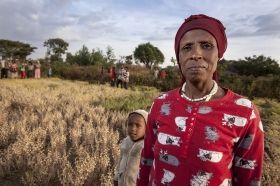New research from Florida Institute of Technology finds that fish born in marine reserves where fishing is prohibited grow to be larger, healthier and more successful at reproduction.
articles
Running On Renewables: How Sure Can We Be About The Future?
A variety of models predict the role renewables will play in 2050, but some may be over-optimistic, and should be used with caution, say researchers.
Twenty-year partnership helping thousands in Ethiopia
A University of Saskatchewan delegation led by researcher Carol Henry has just returned from meetings in Ethiopia that celebrated the outcomes of a 20-year partnership between U of S and Hawassa University. Mary Buhr, dean of Agriculture and Bioresources, and Maurice Moloney, executive director and CEO of the U of S Global Institute for Food Security, were part of the delegation.
Researchers Develop New Method to Improve Crops
Technique using plant's own DNA could produce crops that are more resistant to drought and disease
Glaciers in Mongolia’s Gobi Desert Actually Shrank During the Last Ice Age
The simple story says that during the last ice age, temperatures were colder and ice sheets expanded around the planet. That may hold true for most of Europe and North America, but new research from the University of Washington tells a different story in the high-altitude, desert climates of Mongolia.
Caribou population decline not caused by over-harvesting by Indigenous groups
There are several reasons barren-ground caribou populations in Canada have declined more than 70 per cent over the past two decades, but too much hunting by Indigenous people is not one of them, a new University of Alberta-led study shows.










